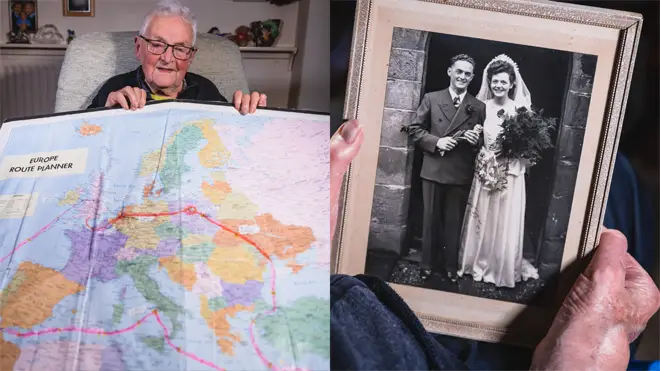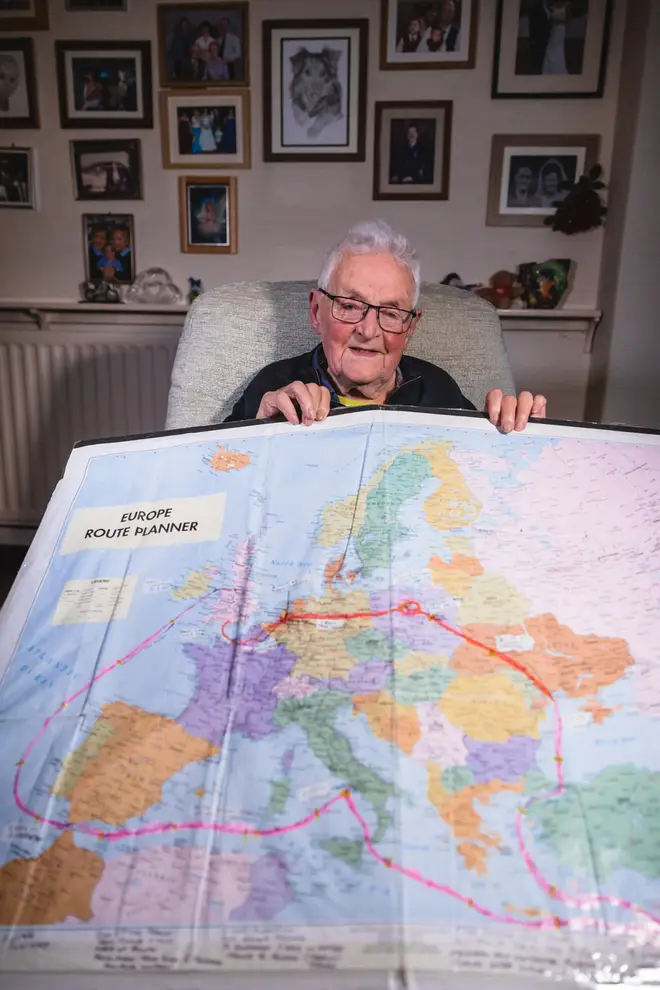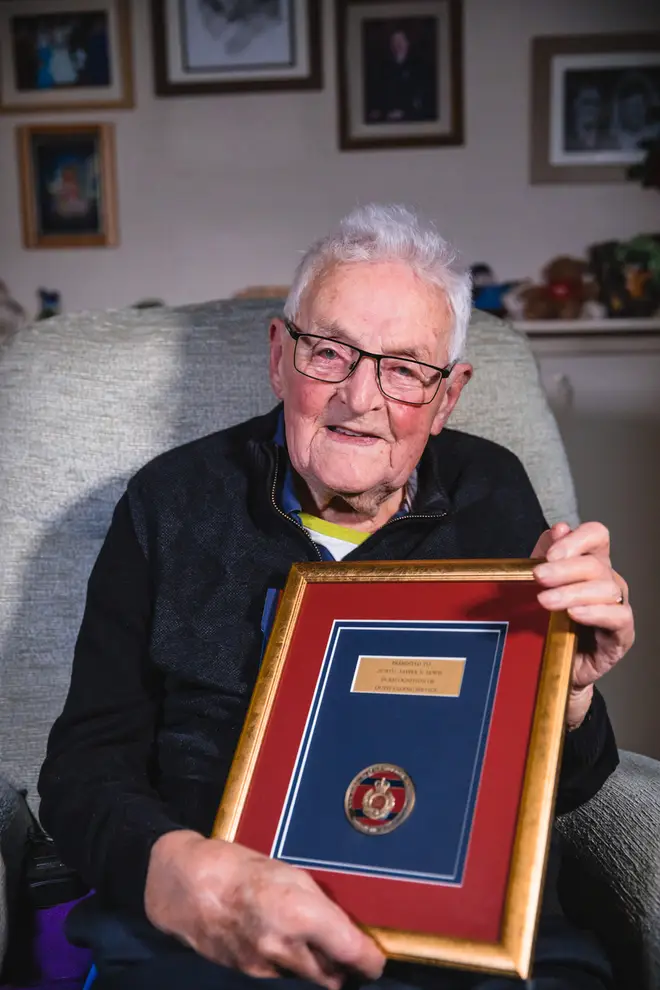
Ian Payne 4am - 7am
7 May 2020, 10:36

A WW2 veteran who made a 10,000 mile trek around Europe after escaping from a prisoner of war camp has recounted his extraordinary journey home ahead of the 75th anniversary of VE Day.
Norman Lewis, 100, managed to break free from German capture in Poland during the Second World War only to embark on a journey spanning two continents to reach his father’s house in Stoke on Trent.
He also recalled his experiences of VE Day, describing the “absolutely wonderful” scenes of people dancing in the streets when the Allied victory was declared on May 8 1945.
READ MORE: The UK's 'lockdown' VE Day anniversary - and how you can safely take part
But the former Royal Engineer sapper said he felt the lockdown could spoil this year’s VE Day for many veterans who were facing a "lonely" time with social distancing in place. However he said he was gearing up for a “wonderful party” when social distancing curbs ease.

Speaking to LBC News about his memories of VE day he said: “It meant a lot for me, because I was home and was on leave when they announced the war was over – people were dancing in the streets and drinking, it was absolutely wonderful.
“What stood out most was when I got to me ‘dad’s house and got to the gate I thought, ‘I’ve done it, I’ve made it 10,000 miles and now I’m home’. It has meant an awful lot to me since.”

Norman joined the British Army at the outset of the war in 1939 but was captured in June 1940, only 40 miles away from Dunkirk, northern France, where thousands of Allied troops were evacuated from beaches and harbours to evade the Germans.
“We didn’t know a thing about [Dunkirk], no one told us,” he told LBC News. “We were ordered to go to a bridge 40 miles away and blow it up at 4am in the morning… The battlefront was getting closer and closer.
“The German tanks arrived with machine guns and as Jerries got out all hell broke loose – our lorry blew up in flames… We realised we’d walked into an ambush.
“One tapped me on the shoulder and said in plain English, ‘stand up - for you the war is over’. They threw us in a ditch and were going to shoot us – and it’s quite true that when you’re about to die all your past life all comes in front of you. But a German officer came and said ‘don’t shoot them, stand behind enemy lines’. To this day I believe he was really British and recognised us, but he saved our lives.”
Norman was transferred to a larger camp in Poland with 23,000 prisoners of war, where he spent five years working as a labourer while the conflict raged around him.
But one day he awoke to the sound of gunfire. “It was the Russians and it gradually got louder and louder until one day we could hear machine gun fire,” he said.
“All the Germans in the village packed up and left, our guards were going to shoot us but changed their minds and locked us up and threw the key away while they fled.”
It proved to be freedom from German capture - and the start of a mammoth 10,000 mile journey home.
Norman and 18 other prisoners of war were told to make the two-day, 75 mile trip to Warsaw, which they initially tried on foot. The Russian Army asked them to write down everything they knew about their hometown, to trace them back to England.
“We were put on a train for six days to Odessa [in Ukraine], under guard by Russians and then a boat arrived which turned out to be a British ship. It took us to Turkey, then to Egypt, then we sailed for Naples in Italy, then to the Straits of Gibraltar, then England.
“I arrived at Liverpool on 31st March, they put us on a train and sent us to the south of London where we had showers, a haircut, brand new uniforms, all the medals put on our jackets, six weeks relief on our passports and they sent us home.
“I arrived at Stoke on Trent at 3.30am and the taximan wouldn’t take any money off us …when I walked to my dad’s place I thought ‘Norman you’ve done it, you’ve covered 10,000 miles and you’re home’.
“I walked down my garden path and my dad said who’s that and I said ‘it’s Norman, dad, it’s me’, and I’ve never seen him break down like it.”
The incredible journey has meant VE Day brings back many memories for Norman, who received a telegram from the Queen in August 2019 for his birthday, which makes having to mark the occasion alone this year especially painful.
“It has spoiled it this year with lockdown,” he told LBC News. “I do have nurses coming in to attend to me and my carer Cathy has been absolutely marvellous. But now she has to stand outside and talk to me.”
But he thanked the armed forces charity Ssafa for being “brilliant to me”, supporting him through the pandemic and even securing him two more war medals “I didn’t know I was entitled to”. He is now a lifetime member of the Royal Corps of Engineers.
In a message to Brits ahead of the 75 year milestone of VE Day, he added: “Think of the lads which didn’t get back. I don’t know even now whether my mates in prison with me are still alive. I’m the only one as far as I know… it makes me feel lonely now.”